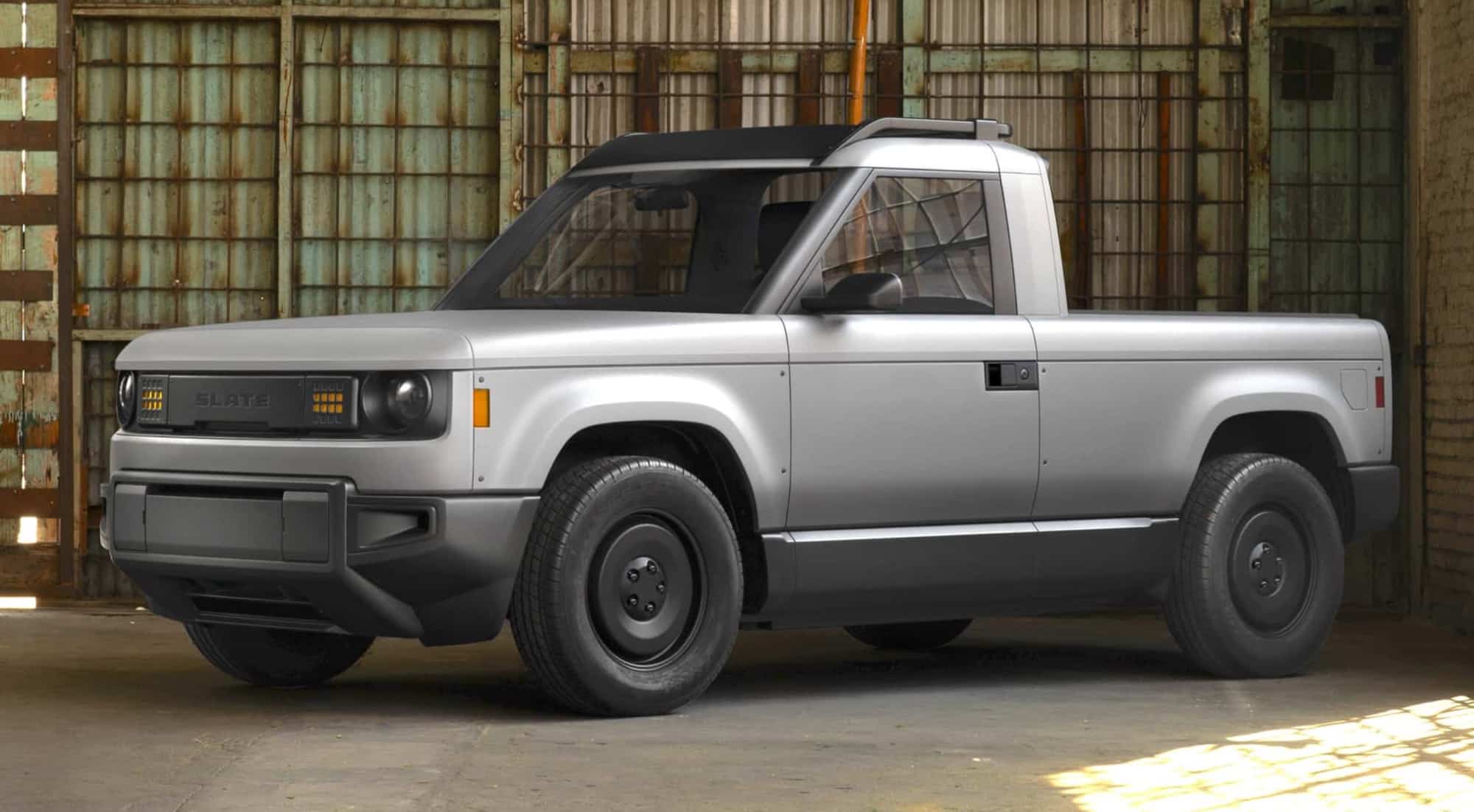Imagine ditching power windows for a sub-$20K electric pickup—sounds crazy, right? But Bezos-backed Slate Auto thinks it’s genius, especially with that $7,500 tax credit vanishing soon.
Slate Auto, a Michigan-based startup backed by Amazon founder Jeff Bezos, is introducing a minimalist electric pickup truck priced under $20,000, but the impending expiration of a $7,500 federal tax credit poses a significant hurdle for potential buyers, reports Reuters. This development highlights the challenges in the U.S. EV market, where cooling sales and rising costs test new entrants’ strategies for affordability.
Minimalist Design Targets Cost Savings
Slate Auto simplifies its two-seat pickup, which measures slightly smaller than a Honda Civic hatchback, by using about 500 parts in assembly—far fewer than the thousands in traditional trucks. The company employs composite body panels in gray, with an optional vinyl wrap, eliminating the need for an expensive paint shop. This approach allows Slate to produce all trucks in a basic package, dubbed a “SKU of one,” where customers can add features like a stereo, center console, or special lighting later. Executives aim to hold down costs through this modular system, enabling the startup to absorb the tax credit loss and still undercut competitors, as Barman explained.

The design draws from an idea by Miles Arnone, CEO of Re:Build Manufacturing, who sought better access to affordable vehicles for workers. A team formed, including Chairman Jeff Wilke, a former Amazon executive, and hired CEO Chris Barman, previously an engineering executive at Fiat Chrysler.
Barman reportedly stated at a Detroit conference in July: “We are building the affordable vehicle that has long been promised but never delivered.”
Challenges in a Cooling EV Market
U.S. EV sales growth has slowed as consumer interest wanes, compounded by the high cost of batteries that hinders profitability for most players. Even in China, where smaller EVs thrive with cost advantages, many companies remain unprofitable. Slate enters this landscape with over 100,000 reservations and $700 million raised, yet faces a long path to viability. The average new-vehicle price exceeds $45,000, creating an opportunity for Slate’s sub-$20,000 offering, especially as Tesla has shelved plans for a mid-$20,000s EV.
The loss of the federal tax credit, set to expire on September 30 following a budget package signed by President Donald Trump, could dampen demand further. Auto executives and analysts predict this will hurt EV adoption. Potential tariffs under the Trump administration threaten to raise prices on imported budget cars from Mexico and Korea, potentially worsening affordability issues for many Americans.
Consumer Appeal and Industry Reactions
Slate bets on a shift toward no-frills vehicles, particularly among younger drivers. This raises questions about whether U.S. buyers, who last year spent 33% above base prices on average for higher-end features—up from 28% in 2014—will embrace crank windows and optional stereos. Evidence suggests new cars are increasingly out of reach, fostering appetite for modular, honest designs.
Paul Waatti, director of industry analysis at AutoPacific, noted: “There’s a growing appetite, especially among younger drivers, for vehicles that are more honest, more modular and less over-engineered. Slate taps right into that.”
Industry leaders echo intrigue. Ford CEO Jim Farley and Executive Chair Bill Ford admired Slate’s customer-centered ethos and affordability in a May town hall.
Stellantis’ Tim Kuniskis, head of American brands, called it “super interesting” at a June event, adding: “The idea behind it, we’ve talked about that idea a million times. It’s a cool idea.” Yet Kuniskis questioned final costs once options are added.
Slate plans production at a former catalog factory in Warsaw, Indiana, with launches expected late next year. Startups like California-based Telo also pursue smaller electric pickups, contrasting larger models from traditional automakers that have seen mixed success. This trend underscores a pivot toward compact, efficient EVs amid economic pressures.
Slate’s strategy tests the market’s readiness for stripped-down electrics, balancing innovation with real-world barriers like regulatory changes and consumer habits. As EV adoption evolves, such ventures could redefine accessibility in transportation.
Discover more from EVXL.co
Subscribe to get the latest posts sent to your email.


